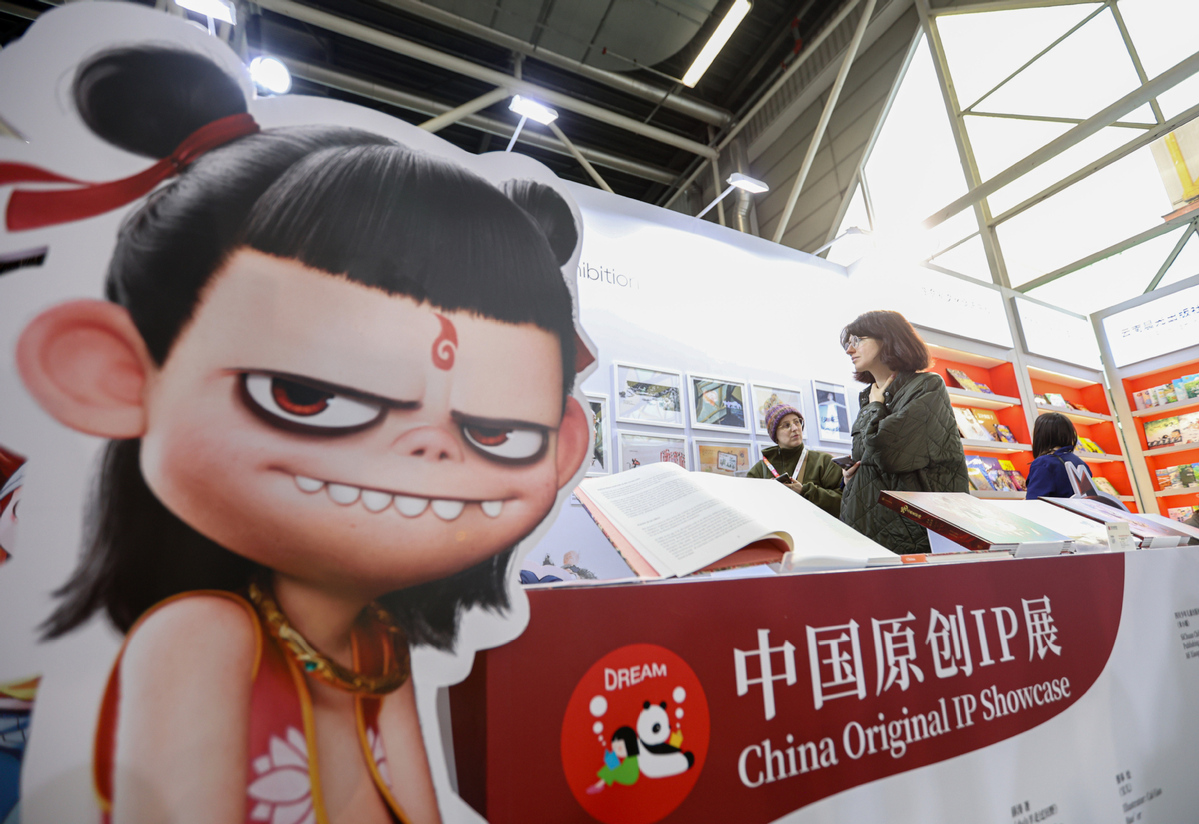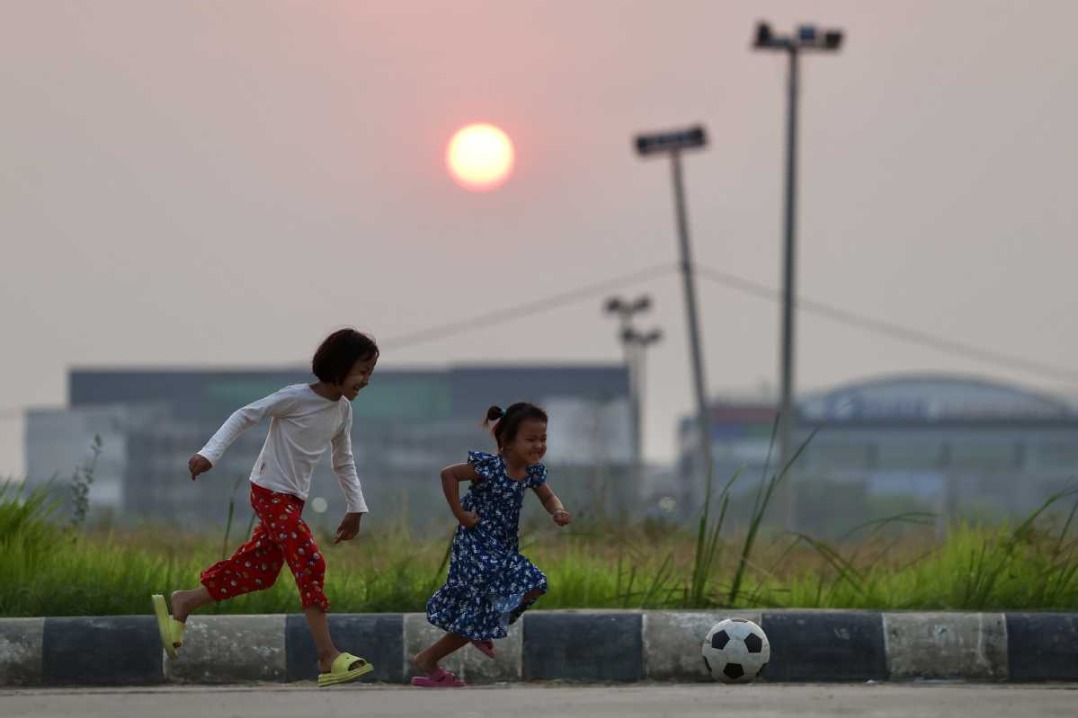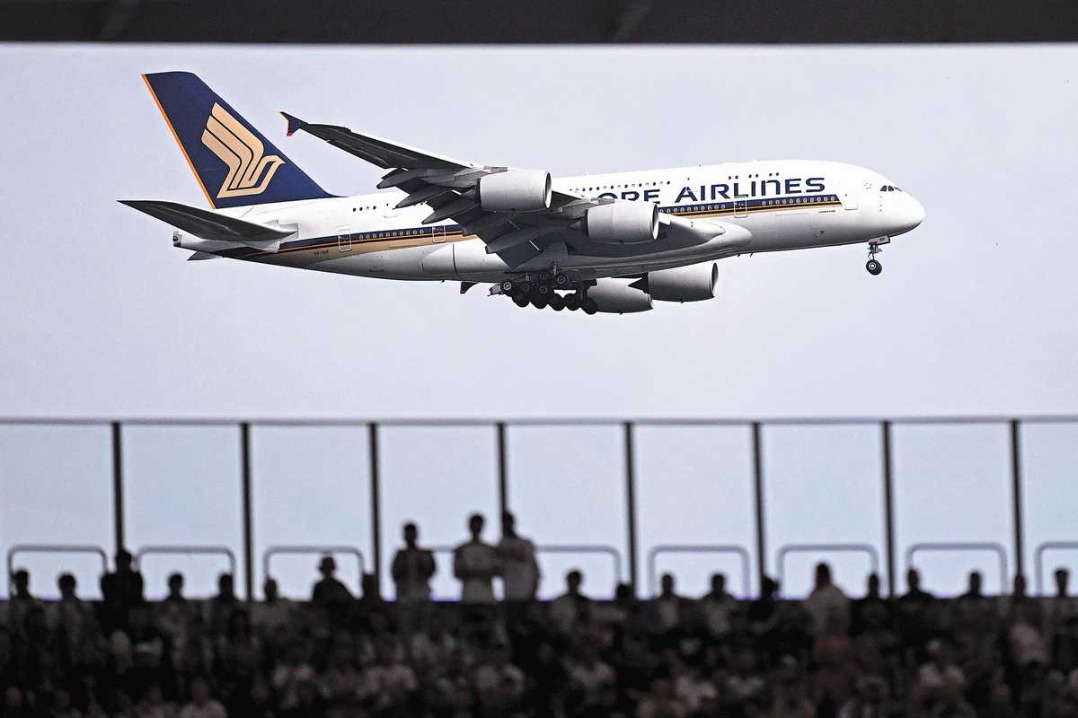Ne Zha 2's 15b record shows boom of Chinese pop culture


Move over Hollywood, China's Ne Zha 2 is here. The film has stormed the global stage, proving that animated storytelling isn't confined to talking toys or singing princesses, and that Asia is more than capable of producing world-class animation.
This dazzling sequel to the 2019 blockbuster Ne Zha isn't just a film; it's a cultural phenomenon, a visual masterpiece, and a reminder that the most compelling stories transcend borders.
With superlative animation, breathtaking special effects, and a narrative that seamlessly blends humor, heartbreak and moral depth, Ne Zha 2 isn't merely the biggest animated film of the moment — it's a triumphant celebration of China's artistic renaissance and a beacon of its growing soft power.
Picking up where the first film left off, Ne Zha 2 follows the mischievous, gap-toothed demon boy Ne Zha and his noble dragon prince companion Ao Bing as they navigate a world teeming with gods, dragons and ocean-dwelling monsters. The stakes are higher, the battles more epic, and the emotional punches land with even greater force.
Director Yang Yu, returning from the first installment, masterfully weaves a sprawling mythological tapestry drawn from The Investiture of the Gods, a Ming Dynasty (1368-1644) novel, ensuring that newcomers can follow the plot. That said, if you haven't seen the first Ne Zha, do yourself a favor and watch it before diving into this one. Trust me, you'll thank me later.
What sets Ne Zha 2 apart is its ability to balance spectacle with soul. The animation is breathtaking — think shimmering dragon scales, gravity-defying celestial palaces, and battle sequences that rival anything Marvel or DC Comics has ever produced. But what truly elevates this film is its focus on the human and demonic emotions at its core.
Ne Zha remains the brash, immature kid we fell in love with, but his journey toward self-discovery and redemption is profoundly moving. His bond with Ao Bing, rooted in their shared destiny as two halves of the Chaos Pearl, is both heartwarming and heartbreaking. And let's not forget the tearjerker moments involving Ne Zha's parents, Lady Yin and Li Jing, whose unwavering love for their son will leave you reaching for tissues.
Of course, it's not all heavy drama. Ne Zha 2 delivers plenty of laugh-out-loud moments, thanks to its signature potty humor. The film's humor is delightfully juvenile, but it never feels out of place in a story that's ultimately about growing up, finding your place in the world and learning to wield your power responsibly. It's a rare blockbuster that can make you laugh, cry and cheer — sometimes all at once.
But Ne Zha 2 isn't just a triumph of storytelling and animation; it's a milestone for Chinese cinema and culture. The film's record-breaking box office success — about 15 billion yuan ($2.07 billion) and counting — is a testament to China's growing influence in the global entertainment industry, but it's also a celebration of the country's rich cultural heritage.
At a time when the world is increasingly interconnected, Ne Zha 2 serves as a bridge between East and West, introducing global audiences to myths and legends that have shaped Chinese civilization for millennia. It's a reminder that China's cultural renaissance isn't just about economics — it's about reclaiming a legacy that dates back 5,000 years.
In many ways, Ne Zha 2 feels like a modern-day echo of the glorious Tang Dynasty (618-907), when China's cultural and economic power reached its zenith, influencing much of East Asia. This film is more than just entertainment; it's a celebration of China's rising soft power, a testament to the enduring influence of art and culture to foster understanding and connection. And let's be real: If a movie about a demon boy and a dragon prince can captivate audiences worldwide, imagine what else China's creative minds have in store.
Whether you're a fan of animation, mythology, or simply great storytelling, Ne Zha 2 is a must-watch. It's a film that proves sequels can surpass their predecessors, that animation is a medium for all ages, and that the stories we tell have the power to unite us.
As the credits rolled, I couldn't help but feel a sense of awe — not just at what I'd just watched, but at the cultural awakening it represents. Ne Zha 2 is more than a movie; it's a movement. As the world embraces this mythical masterpiece, one thing is clear: The future of storytelling is boundless, and a peacefully resurgent China is leading the charge.
The author is a multi-award-winning writer and a columnist for the Philippine Star and Abante newspapers. The views do not necessarily reflect those of China Daily.

































